
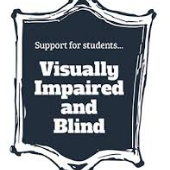


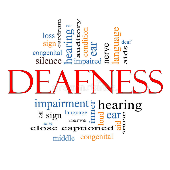

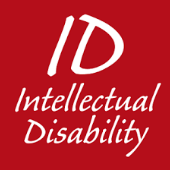
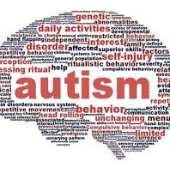
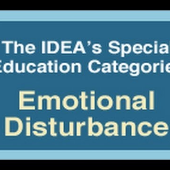
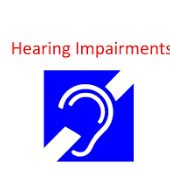
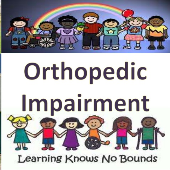
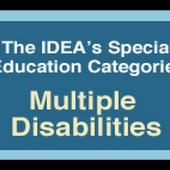
An impairment in hearing, whether permanent or fluctuating.
A communication disorder such as stuttering, impaired articulation, a language impairment, or a voice impairment that adversely affects a child's educational performance.
A condition exhibiting one or more of the following characteristics over a long period of time and to a marked degree: Inability to learn that cannot be explained by intellectual, sensory, or health factors; inability to build or maintain satisfactory interpersonal relationships with peers and teachers; Inappropriate types of behavior or feelings under normal circumstances; a general pervasive mood of unhappiness or depression; a tendency to develop physical symptoms or fears associated with personal or school problems.
a developmental disability significantly affecting verbal and nonverbal communication and social interaction
Significantly subaverage general intellectual functioning, existing concurrently with deficits in adaptive behavior and manifested during the developmental period.
A severe skeletal impairment that adversely affects a child's educational performance. The term includes impairments caused by a congenital anomaly, impairments caused by disease (e.g., poliomyelitis, bone tuberculosis), and impairments from other causes (e.g., cerebral palsy, amputations, and fractures or burns that cause contractures).
Having limited strength, vitality, or alertness, including a heightened alertness to environmental stimuli, that results in limited alertness with respect to the educational environment: due to chronic or acute health problems such as asthma, attention-deficit disorder or attention-deficit hyperactivity disorder, diabetes, epilepsy, a heart condition, hemophilia, lead poisoning, leukemia, nephritis, rheumatic fever, sickle cell anemia, and Tourette syndrome.
Concomitant impairments (such as intellectual disability-blindness, intellectual disability-orthopedic impairment, etc.), the combination of which causes such severe educational needs that they cannot be accommodated in a special education program solely for one of the impairments
An acquired injury to the brain caused by an external physical force, resulting in total or partial functional disability or psychosocial impairment, or both.
An impairment in vision that, even with correction, adversely affects a child's educational performance.
A hearing impairment so severe that a child is impaired in processing linguistic information through hearing, with or without amplification.
A disorder in one or more of the basic psychological processes involved in understanding or in using language, spoken or written, that may manifest itself in the imperfect ability to listen, think, speak, read, write, spell, or do mathematical calculations.